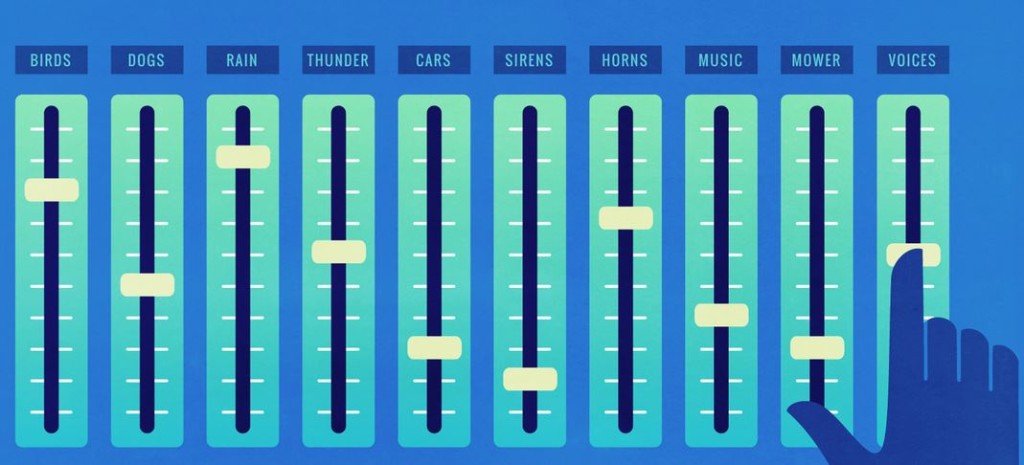The Science Behind the Brazuca, the New World Cup Ball
The BBC published an interesting story this week about the Brazuca, the new World Cup ball, which is the 12th one created by Adidas for the games. The previous ball, named Jabulani, used in 2010 in South Africa was criticized for its unpredictable trajectory when kicked. This new one, though, has better accuracy, according to Adidas.
How the ball behaves comes down to design factors, said aerodynamic experts interviewed by the BBC. Those factors include the amount of roughness and the geometry of the seams.
“I am pretty sure the Brazuca is going to behave more like the traditional 32-panel internally stitched ball, so the complaints we got in the last two World Cups will be minimized,” Dr. Rabi Mehta, branch chief at NASA’s Ames Research Center in California, told the BBC.
Visit the BBC website to read the complete story about the one ball that most of the world will focus on this summer. Also, fee free to follow the ball on Twitter.
(Image: Adidas)
FCC Approves Wireless Broadband Incentive Auction
Yesterday, good news concerning Wi-Fi came from the Federal Communications Commission (FCC).
“The FCC approved an order that sets the stage for an incentive auction that can advance both licensed and unlicensed wireless broadband. The FCC has found a compromise that will allow it to auction large bands for licensed wireless services while still permitting innovations in unlicensed technologies in at least three channels in every community in the nation,” WifiForward said in a statement. “By ensuring that American consumers, businesses, schools, libraries, anchor institutions, and local governments will have access to these three unlicensed channels across the country, the FCC has laid the foundation for the investment and innovation needed to develop a new class of 600 MHz unlicensed technologies.
“WifiForward congratulates the FCC on this substantial achievement. But far more work remains to turn the promise of the 600 MHz band into a reality.
“The FCC announced that it would now issue a series of important rule-making notices to set the critical technical rules for unlicensed technologies. We strongly support the FCC’s efforts so far and look forward to working together to ensure a robust wireless economy supported by the most efficient and effective allocation of spectrum, one of our nation’s most valuable public resources.”
(photo credit: FutUndBeidl via photopin cc)
Project Tango Plans to Make Your Venues More Awesome
It’s becoming a Google world, and we’re just living in it. Take, for example, its new endeavor called Project Tango. According to its website, “Project Tango is an attempt to create a mobile device unlike like any other, a mobile device that shares our sense of space and movement, that understands and perceives the world the same way we do.”
Google asks you to imagine walking into a store and seeing exactly where everything you want to buy is located, or being helped to navigate a new place. Google says “the possibilities are vast.”
So, then, what kind of Project Tango possibilities exist for venues? The Event Manager Blog has some answers.
“For venues, this technology could also be a boon. Much more than a panoramic image, you’d be able to show a potential client a full virtual walkthrough of the space, including different table setups setups (classroom vs. rounds), stage configurations, centerpiece options, linens, and chair covers. This could be especially handy for more unique or unusual spaces and venues that might not translate well into pictures or videos,” Brandt Krueger wrote. “We all know those kinds of venues—that you almost have to see to believe before you can even visualize having your event there. Being able to quickly and easily make 3D walkthroughs might make the sell go a little easier, or at least get the potential client in the door to see for themselves.”
Check out the Event Manager Blog for more details about the technology, and watch the video below, which explains more about Project Tango and the goals and dreams of its designers.
Watch: Coca-Cola Excels at Improving the Guest Experience
Rival fans at San Siro Stadium in Milan were greeted with a unique vending experience that required them to send a bottle of Coca-Cola to an opposing fan:
More about the campaign via AdWeek.
Industry News Weekly Roundup
There was a lot of news this past week. Here are some stories that caught our eyes.
Sonic Boom
—The Atlantic
“How digital technology is transforming our relationship with sound.”
The Royal Albert Hall’s Lonely Hearts Club Band
—Daily Mail
“Venue gets Sgt. Pepper-style collage of star acts…created by Beatles’ album artist Sir Peter Blake.”
Take Me Out to the Ballpark—All of Them
—Slate
“How to visit all 30 major-league stadiums in 30 days.”
New 49ers’ Stadium Seats Have Hooks
—NBC Bay Area
“Fans will see more than cup holders when they arrive at their Levi’s Stadium seats.”
Are Sundays Dying?
—Pacific Standard
“Probably. And no one, at least no Canadian, seems to care.”
(Image: The Atlantic/Jackie Lay)
Do you want to receive a Front Row News weekly digest?
Categories
- Allied (856)
- Architecture (147)
- Arenas (744)
- Career (890)
- Convention Centers (889)
- Education (608)
- Events (1,528)
- Food & Beverage (193)
- Foundation (113)
- Guest Experience (1,482)
- Industry News (2,253)
- Leadership (1,872)
- Marketing (150)
- Membership (1,985)
- Music (212)
- Performing Arts Centers (453)
- Professional Development (398)
- Research (127)
- Safety & Security (425)
- Sports (763)
- Stadiums (607)
- Student (159)
- Technology (515)
- Ticketing (92)
- Touring (82)
- Trends (357)
- Uncategorized (771)
- Universities (216)
- Video (25)
- Young Professional (198)
Twitter Feed
- Twitter feed loading
Recent Posts
- GEODIS Park Selects Allied Universal As Its Preferred Event Services Provider
- Venuworks Appoints Marc Solis as Executive Director of the Fresno Convention and Entertainment Center
- Los Angeles Convention Center Diverts 8,000 Pounds of Wood Waste to Local Foundation Supporting Fire Victims
- Fort Worth Unveils Plans for Phase 2 of Convention Center Transformation
- San Diego Convention Center CEO Announces Retirement After a Decade of Leadership
Categories
- Allied
- Architecture
- Arenas
- Career
- Convention Centers
- Education
- Events
- Food & Beverage
- Foundation
- Guest Experience
- Industry News
- Leadership
- Marketing
- Membership
- Music
- Performing Arts Centers
- Professional Development
- Research
- Safety & Security
- Sports
- Stadiums
- Student
- Technology
- Ticketing
- Touring
- Trends
- Uncategorized
- Universities
- Video
- Young Professional
Archives
- February 2026
- January 2026
- December 2025
- November 2025
- October 2025
- September 2025
- August 2025
- July 2025
- June 2025
- May 2025
- April 2025
- March 2025
- February 2025
- January 2025
- December 2024
- November 2024
- October 2024
- September 2024
- August 2024
- July 2024
- June 2024
- May 2024
- April 2024
- March 2024
- February 2024
- January 2024
- December 2023
- November 2023
- October 2023
- September 2023
- August 2023
- July 2023
- June 2023
- May 2023
- April 2023
- March 2023
- February 2023
- January 2023
- December 2022
- November 2022
- October 2022
- September 2022
- August 2022
- July 2022
- June 2022
- May 2022
- April 2022
- March 2022
- February 2022
- January 2022
- December 2021
- November 2021
- October 2021
- September 2021
- August 2021
- July 2021
- June 2021
- May 2021
- April 2021
- March 2021
- February 2021
- January 2021
- December 2020
- November 2020
- October 2020
- September 2020
- August 2020
- July 2020
- June 2020
- May 2020
- April 2020
- March 2020
- February 2020
- January 2020
- December 2019
- November 2019
- October 2019
- September 2019
- August 2019
- July 2019
- June 2019
- May 2019
- April 2019
- March 2019
- February 2019
- January 2019
- December 2018
- November 2018
- October 2018
- September 2018
- August 2018
- July 2018
- June 2018
- May 2018
- April 2018
- March 2018
- February 2018
- January 2018
- December 2017
- November 2017
- October 2017
- September 2017
- August 2017
- July 2017
- June 2017
- May 2017
- April 2017
- March 2017
- February 2017
- January 2017
- December 2016
- November 2016
- October 2016
- September 2016
- August 2016
- July 2016
- June 2016
- May 2016
- April 2016
- March 2016
- February 2016
- January 2016
- December 2015
- November 2015
- October 2015
- September 2015
- August 2015
- July 2015
- June 2015
- May 2015
- April 2015
- March 2015
- February 2015
- January 2015
- December 2014
- November 2014
- October 2014
- September 2014
- August 2014
- July 2014
- June 2014
- May 2014
- April 2014
- March 2014
- February 2014
- January 2014
- December 2013
- November 2013
- October 2013
- September 2013
- August 2013
- July 2013
- June 2013
- May 2013
- April 2013
- March 2013
- February 2013
- January 2013
- May 2012
- March 2012
- December 2011
- November 2011
- October 2011
Recent Comments
- Frank Bradshaw, Ph.D., CVE on John Meyer, CVE, a Tireless Advocate of Certification for Venue Professionals, Has Died
- Neil Sulkes on Hilary Hartung, Friend to Many in Venue Marketing, Has Left Us
- Jason Parker, CVE on The Devastation of Hurricane Helene and How We Can Support One Another
- Larry Perkins on Touhey Testifies Against Speculative Ticketing Before Congressional Subcommittee
- Peter Secord on Major Players for Planned Elkhart Amphitheater Were in the Mix at VenueConnect




